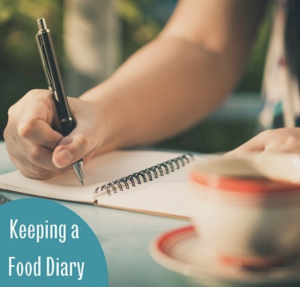
Overcoming Plateaus: Tips for Breaking Through Weight Loss Plateaus
Introduction:
Embarking on a weight loss journey often begins with excitement and motivation. You’re making healthy choices, seeing progress on the scale, and feeling more energetic. However, as time goes by, you may encounter a common obstacle: the dreaded weight loss plateau. In this blog post, we will explore the reasons behind weight loss plateaus and provide evidence-based strategies to help you break through them and continue on your path to achieving your weight loss goals.
Understanding the Weight Loss Plateau:
A weight loss plateau occurs when your progress stalls, and you stop losing weight despite consistent efforts. This can be disheartening, but it’s a natural part of the weight loss process. Several factors contribute to plateaus, including metabolic adaptation, changes in activity level, and adjustments in calorie intake.
Tips for Breaking Through Weight Loss Plateaus:
1. **Reevaluate Your Caloric Intake:** Over time, your calorie needs may change as you lose weight. Use a calorie tracking app or consult a registered dietitian to recalculate your daily calorie intake based on your current weight and activity level. Slightly reducing your calorie intake can help jumpstart weight loss.
2. **Diversify Your Exercise Routine:** If you’ve been doing the same workouts for an extended period, your body may have adapted to them, leading to a plateau. Introduce variety by trying new exercises, increasing intensity, or changing the duration of your workouts. High-intensity interval training (HIIT) and strength training are effective for revving up metabolism.
3. **Watch Your Portion Sizes:** As you become accustomed to a healthier lifestyle, it’s easy to underestimate portion sizes. Use measuring cups and a food scale to ensure you’re not inadvertently consuming extra calories. Portion control is crucial for maintaining a calorie deficit.
4. **Prioritize Protein:** Protein can help you feel fuller for longer and preserve lean muscle mass during weight loss. Incorporate lean protein sources like chicken, fish, beans, and tofu into your meals to aid in satiety and metabolic support.
5. **Stay Hydrated:** Dehydration can sometimes be mistaken for hunger. Ensure you’re drinking enough water throughout the day to stay adequately hydrated. A study published in the Journal of Clinical Endocrinology & Metabolism found that drinking water can boost metabolism.
6. **Get Adequate Sleep:** Poor sleep can disrupt your body’s hunger and satiety hormones, potentially leading to weight gain or plateaus. Aim for 7-9 hours of quality sleep each night to support your weight loss efforts.
7. **Manage Stress:** Chronic stress can hinder weight loss by increasing cortisol levels, a hormone associated with fat storage. Practice stress-reduction techniques such as meditation, yoga, or deep breathing exercises to help manage stress effectively.
8. **Track Your Progress:** Keep a detailed record of your meals, workouts, and progress to identify trends and potential problem areas. A food diary or weight loss app can provide valuable insights into your habits.
9. **Consider Intermittent Fasting:** Some individuals find success in breaking through plateaus by incorporating intermittent fasting into their routine. Consult with a healthcare professional before trying this approach to ensure it’s suitable for you.
10. **Seek Professional Guidance:** If you’ve hit a prolonged plateau despite your best efforts, consider consulting a registered dietitian or fitness expert. They can provide personalized advice and adjustments to your plan.
Conclusion:
Weight loss plateaus are a normal part of the journey, but they don’t have to derail your progress. By reevaluating your caloric intake, diversifying your exercise routine, watching portion sizes, prioritizing protein, staying hydrated, getting adequate sleep, managing stress, tracking your progress, considering intermittent fasting, and seeking professional guidance when needed, you can break through plateaus and continue your successful weight loss journey. Remember, consistency and determination are your allies in achieving and maintaining a healthy weight.
Citations:
1. MacLean, P. S., Wing, R. R., Davidson, T., Epstein, L., Goodpaster, B., Hall, K. D., … & Ryan, D. (2015). NIH working group report: Innovative research to improve maintenance of weight loss. Obesity, 23(1), 7-15.
2. Jakicic, J. M., Clark, K., Coleman, E., Donnelly, J. E., Foreyt, J., Melanson, E., … & Volpe, S. L. (2001). American College of Sports Medicine position stand. Appropriate intervention strategies for weight loss and prevention of weight regain for adults. Medicine & Science in Sports & Exercise, 33(12), 2145-2156.
3. Rolls, B. J., Ello-Martin, J. A., & Tohill, B. C. (2004). What can intervention studies tell us about the relationship between fruit and vegetable consumption and weight management?. Nutrition reviews, 62(1), 1-17.
4. Stookey, J. D., Constant, F., Popkin, B. M., & Gardner, C. D. (2008). Drinking water is associated with weight loss in overweight dieting women independent of diet and activity. Obesity, 16(11), 2481-2488.
5. Wing, R. R., & Hill, J. O. (2001). Successful weight loss maintenance. Annual review of nutrition, 21(1), 323-341.
6. Thomas, D. M., Bouchard, C., Church, T., Slentz, C., Kraus, W. E., Redman, L. M., … & Heymsfield, S. B. (2012). Why do individuals not lose more weight from an exercise intervention at a defined dose?. An energy balance analysis. Obesity, 20(12), 2281-2286.
7. Hall, K. D., & Kahan, S. (2018). Maintenance of lost weight and long-term management of obesity. Medical Clinics, 102(1), 183-197.
8. Tinsley, G. M., & La Bounty, P. M. (2015). Effects of intermittent fasting on body composition and clinical health markers in humans. Nutrition reviews, 73(10), 661-674.
9. Gonnissen, H. K., Hursel, R., Rutters, F., Martens, E. A., & Westerterp-Plantenga, M. S. (2013). Effects of sleep fragmentation on appetite and related hormone concentrations over 24 h in healthy men. British Journal of Nutrition, 109(4), 748-756.
10. Adam, T. C., & Epel, E. S. (2007). Stress, eating and the reward system. Physiology & Behavior, 91(4), 449-458.





